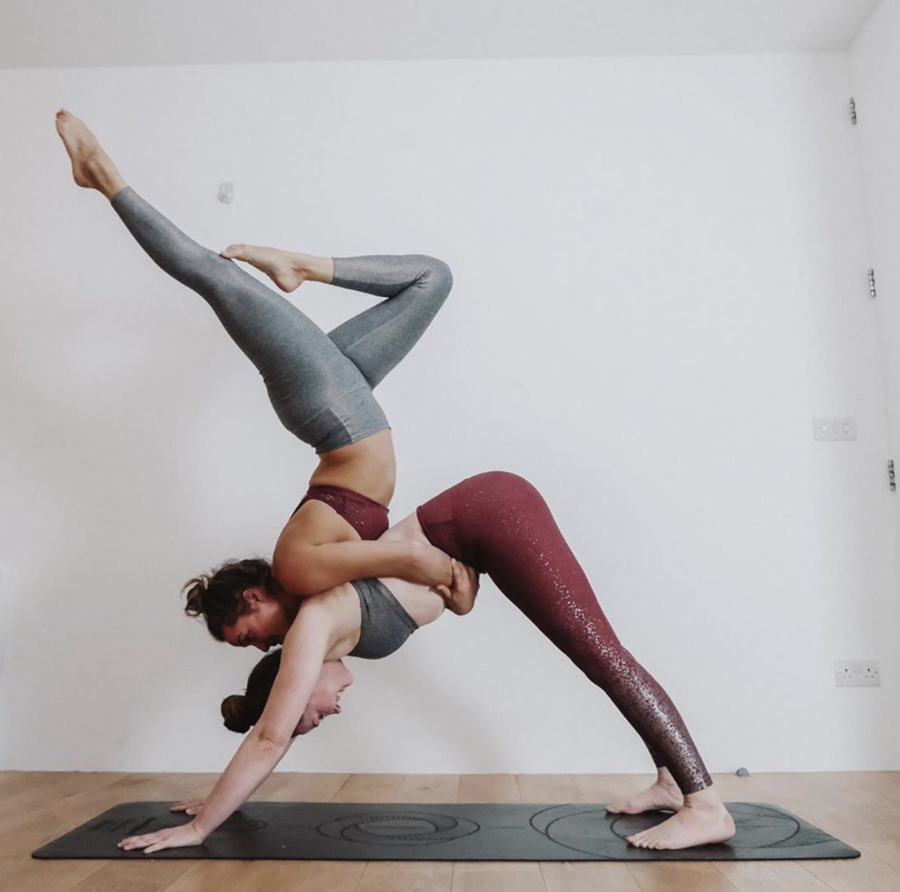We're almost positive that you've come across those incredibly mesmerising AcroYoga photos while scrolling through Instagram (and make your friends try a few poses at home!) Bringing together the spiritual elements of traditional yoga with acrobatics, AcroYoga has become incredibly popular nowadays. Flaunting many physical and mental health benefits, AcroYoga's practice focuses on strength building, improved concentration, and overall stress relief. In this blog, we'll give you a short guide on how you can become an Acro-yogi bear!
What is AcroYoga and How Is It Different?
AcroYoga is like no other...it is a mix of three traditions; Yoga, acrobatics and Thai massage. And it's actually pretty similar to partner yoga, as it involves two people and a spotter. - just with the added fun of acrobatics too. Using various gymnastics techniques, by practising this form of yoga, individuals will build flexibility, trust and teamwork. It also involves the healing qualities of Thai massage. This makes Acro Yoga a deeply compelling, beneficial and spirited way of practising yoga. Read everything you need to know about Acro Yoga here.
What is AcroYoga Good For?
The benefits of AcroYoga are endless; like yoga, it's a great practice that incorporates stretching, encouraging self-love and promoting relaxation, building strength in your core muscles, and so much more.
It's also fantastic for building relationships - as part of your Acro Yoga training, the flyer and the base will take turns to support each other through different poses and movements. It is designed to build trust between the two as understanding that you each need to support one another for the postures to work best is important and increases your skill-level with time.
How to Do AcroYoga? Your Beginner’s Guide
Now, it’s not as easy as it looks but once you learn how to do the basics of AcroYoga and with some practice, you’ll be there in no time. As a beginner trying out AcroYoga for the first time, you'll need to know the following keywords:
Base: This is the person at the bottom of the AcroYoga pose, creating the foundation.
Flyer: The flyer is carried by the base, needing lots of strength and balance.
Spotter: The spotter is hugely important as they provide support for both the base and flyer. They can point out where to improve or lookout if anyone falls (not uncommon for beginners!)
Static poses: These are still poses, great for improving your balance. Generally, these are the most basic poses that beginners start within AcroYoga.
Acrobatic flying: These poses are slightly more challenging. Acrobatic flying requires individuals to move (fly) from one pose to another. It can be much more difficult to learn and should only be taught by certified instructors.
We have given you one static AcroYoga pose to try out below:
Front Bird Pose
The Front Bird Pose is a great one to begin for yogis and great practice for future poses as the flyer has to keep their body fully engaged, and the base has to learn how to balance the flyer.
- The base lies down on the mat, with their back firmly pressed to the ground.
- The flyer begins facing the base while standing at the back of the mat.
- The base puts their feet on the flyer's hips. If they have tight hamstrings, you can place a blacker or yoga bolster under their hips.
- The flyer holds hands with the base and leans forward, placing their weight onto the base's feet.
- The flyer needs to make sure to keep their entire body engaged.
- Hold
- Once you have finished this pose, the base slowly bends their knees so that the flyer's feet can now reach the mat.
We recommend our Yogi Bare Paws X Enhanced Grip Innovation. This mat is a bit longer and wider than most yoga mats, plenty of room for two! Our mat also has innovative grip technology, so even if you break out in a sweat you or your partner won't slip.

Leave a comment